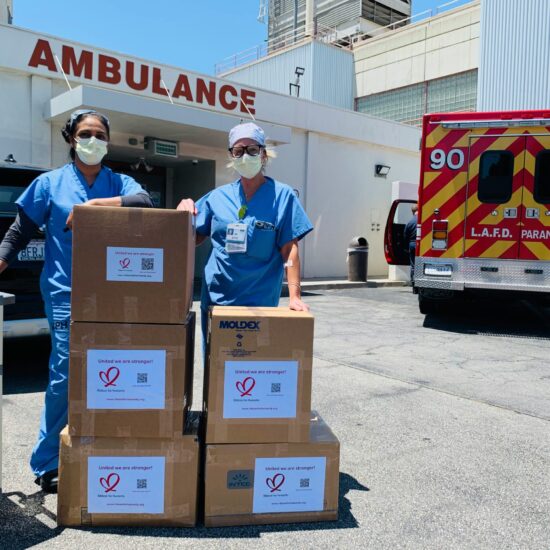This week, the U.S. Supreme Court will hear oral argument in two cases on marriage equality. Hollingsworth v. Perry is a challenge to California’s Proposition 8, a 2008 ballot initiative that amended the state constitution to prohibit recognition of same-sex marriage. U.S. v. Windsor challenges Section 3 of the Defense of Marriage Act (DOMA), a federal law declaring that “‘marriage’ means only a legal union between one man and one woman as husband and wife, and the word ‘spouse’ refers only to a person of the opposite sex who is a husband or a wife.” The law thus bars same-sex couples, even those who are married in states that recognize their union, from rights or benefits available to other married couples. Lower courts in both cases ruled against these laws as violations of the U.S. Constitution’s guarantees of equal protection under the 5th Amendment (DOMA) and the 14th Amendment (Proposition 8).
Public sentiment on marriage equality has evolved rapidly in recent years. In a March ABC-Washington Post poll 58% responded that it should be legal for same-sex couples to marry. (A 2003 ABC-Post poll found support for same-sex marriage among only 37% of respondents). Especially among younger Americans, support for marriage equality is consistently strong, reaching across racial, ethnic, party and religious lines.
Dire predictions about the consequences of allowing same-sex marriage have , not surprisingly, simply not been borne out in those states (or the growing list of countries) that currently recognize it. Many people who previously opposed same-sex marriage have shifted their opinions, in some cases because their concerns for sons, daughters, other loved ones or close friends who themselves are Lesbians or gay men has made the issue more personally compelling for them. The recent announcement by Sen. Rob Portman (R-OH) that he now supports marriage equality is one example. Other prominent political figures have declared their support as well, citing marriage equality as a matter of fairness, including President Obama as well as both Hillary and Bill Clinton (who, as President, had signed DOMA into law in 1996). Over 100 prominent Republicans signed on to an amicus curiae (friend of the court) brief filed by Ken Mehlman, a former Chair of the Republican National Committee and George W. Bush’s 2004 campaign manager, supporting marriage equality.
Health professional organizations have increasingly voiced support for marriage equality. In 2008, the Gay & Lesbian Medical Association (an interdisciplinary group now known as GLMA: Health Professionals Advancing LGBT Equality) issued Same-Sex Marriage and Health, a report detailing research on the adverse health effects that unequal access to marriage has on Lesbians, gay men and the children of same-sex partners. The report cited the impact of discrimination, stigma, lack of access to partners’ health insurance coverage and other benefits, among other factors. GLMA also filed an amicus curiae brief in the Supreme Court cases on marriage equality.
In 2012, the American Academy of Nursing (AAN) adopted a position statement in support of marriage equality. The statement noted that “The Code of Ethics for Nurses . . . compels us to practice with compassion and respect for the inherent dignity, worth and uniqueness of every individual. Moreover, the Academy has a strong record of opposing health inequities and advancing a culturally competent workforce. Marriage equality will contribute to achieving access to high-quality, comprehensive, culturally sensitive, dignified and respectful health care for all persons.” In adopting this statement, the AAN joined several other health professional organizations, including the American Medical Association, the American Psychological Association and the American Psychiatric Association, in supporting marriage equality.
(I should also mention that I serve on the AAN Board of Directors—not only in the interest of disclosure, but also because I am proud that the AAN stepped forward to take a clear and forthright position on this important issue).
Just last week, the nation’s pediatricians added their voices to support of marriage equality when the American Academy of Pediatrics issued a position statement on “Promoting the Well-Being of Children Whose Parents are Gay or Lesbian.” The statement declared the AAP’s support for “[m]arriage equality for all capable and consenting couples, including those who are of the same gender, as a means of guaranteeing all federal and state rights and benefits, and long-term security for their children.”
I won’t venture my guess here on how the Supreme Court will rule on the cases before it, but it is clear that the political and social climate in the U.S. (and worldwide) continues to shift toward marriage equality. The growing support among health professional organizations is welcome news, of course. I hope that it will spur more health professionals to seriously consider the ways in which health care for LGBT people can be improved, how the work environment for LGBT nurses and other health professionals can be more supportive, and how we can all ensure that nursing, medical and other health professional educational programs become safe and supportive places for students to study and to learn—including learning about addressing the health care needs of LGBT people. (Those, however, are topics to blog about at another time).
David Keepnews, PhD, JD, RN, FAAN, Senior Fellow, CHMP








